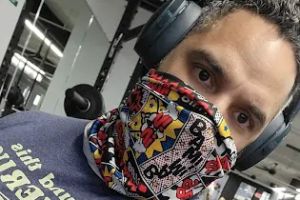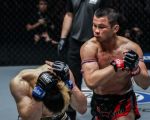Muay Thai versus MMA: Differences in Training
- Introduction to Muay Thai and MMA
- Muay Thai Training
- MMA Training
- Key Differences Between Muay Thai and MMA Training
- Practical Application and Fight Scenarios
- Final Thoughts on Choosing Between Muay Thai and MMA
Introduction to Muay Thai and MMA
When it comes to combat sports, Muay Thai and Mixed Martial Arts (MMA) are two of the most popular disciplines globally. Each sport brings its own unique set of techniques, training methods, and philosophies. In this article, we will explore the differences between Muay Thai and MMA training, examining their approaches to fitness, technique, and strategy. Understanding these differences can help fighters and fans alike appreciate the complexities of both sports, and even decide which one might be best suited for their personal goals.
Muay Thai Training
Muay Thai, known as the "Art of Eight Limbs," is a striking-based martial art originating from Thailand. It involves the use of fists, elbows, knees, and shins to deliver powerful attacks. Training in Muay Thai is intense and focuses heavily on conditioning, speed, and precision. Here’s a breakdown of key elements in Muay Thai training:

Independent Training Spot
54 W 39th St 3rd floor, New York, NY 10018, USA
1. Striking Techniques
The core of Muay Thai training revolves around perfecting strikes with the fists, elbows, knees, and shins. Training often includes repetitive drills to build muscle memory and improve accuracy and power in each strike.

The Training Room ATL.
742 Ponce De Leon Pl NE, Atlanta, GA 30306, USA
2. Conditioning
Muay Thai fighters have exceptional endurance and stamina, which is achieved through rigorous cardio workouts, such as running, jump rope, and high-intensity interval training (HIIT). The physical demands of Muay Thai require fighters to be in peak physical condition.
3. Clinch Work
In addition to striking, Muay Thai also incorporates clinch work, where fighters try to control their opponent’s posture, land knees to the body or head, and set up sweeps or throws.
MMA Training
Mixed Martial Arts (MMA) is a hybrid combat sport that incorporates techniques from various disciplines, including Muay Thai, Brazilian Jiu-Jitsu (BJJ), wrestling, boxing, and more. MMA training is designed to create a well-rounded fighter who is capable of competing in any phase of combat. Here’s a look at some core aspects of MMA training:
1. Striking and Muay Thai Influence
MMA fighters often train in Muay Thai for striking, but they also incorporate boxing, kickboxing, and other styles to create a versatile striking game. In MMA, fighters focus on developing their ability to strike both from a distance and in close quarters.
2. Ground Game and Grappling
Unlike Muay Thai, MMA training places a heavy emphasis on ground fighting techniques, which include Brazilian Jiu-Jitsu (BJJ), wrestling, and submissions. Fighters spend a significant portion of their training learning how to control opponents on the ground, defend against submissions, and execute their own submissions.
3. Wrestling and Takedowns
Wrestling plays a pivotal role in MMA, as fighters often aim to take their opponents to the ground in order to neutralize their striking. Training in wrestling involves mastering takedowns, positioning, and control on the mat.
Key Differences Between Muay Thai and MMA Training
While Muay Thai and MMA share some striking techniques, the overall structure of their training programs is very different. Here’s a comparison of the two:
1. Focus on Discipline
Muay Thai training is highly specialized, with a focus on becoming an expert in striking using the "eight limbs." In contrast, MMA requires a broader range of skills, including striking, grappling, wrestling, and submissions. MMA fighters must be proficient in multiple disciplines to excel in the sport.
2. Ground Training
Ground fighting is a crucial component of MMA, whereas Muay Thai does not involve ground work at all. Muay Thai fighters focus on standing techniques, with some emphasis on clinch work, while MMA fighters must train for both standing and ground combat.
3. Cardiovascular Conditioning
Muay Thai places a heavy emphasis on cardio and leg conditioning, which is critical for throwing powerful strikes with speed and precision. MMA fighters, on the other hand, need a more varied conditioning program that includes not only cardio but also strength, power, and flexibility for all aspects of combat.
Practical Application and Fight Scenarios
Understanding the differences between Muay Thai and MMA training is crucial for fighters when preparing for competition. For example, a Muay Thai specialist may excel in stand-up striking and clinch work, but will struggle in a grappling-heavy MMA match. Conversely, a well-rounded MMA fighter needs to be prepared to face both a strong striker and a proficient grappler in the same bout.
Real-World Example
Consider the case of former UFC champion Anderson Silva, who utilized his striking ability, heavily influenced by Muay Thai, to dominate in the Octagon. However, he also incorporated elements of BJJ and wrestling into his MMA training to defend against takedowns and submissions. This blend of styles made Silva one of the most dangerous and well-rounded fighters in MMA history.
Final Thoughts on Choosing Between Muay Thai and MMA
Both Muay Thai and MMA offer incredible training benefits, but the best choice depends on your goals. If you’re passionate about mastering the art of striking and clinch work, Muay Thai is the way to go. However, if you’re interested in developing a well-rounded set of skills for competitive fighting, MMA training provides a more comprehensive approach.
If you’re ready to start your journey in Muay Thai or MMA, finding the right training facility is essential. Check out Humble Challenger for top-tier training programs and expert coaching in both disciplines.

































